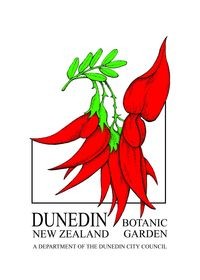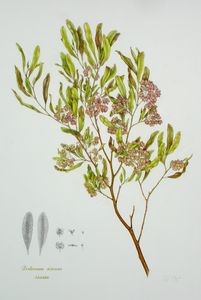There will be four workshops held on Wednesday 28 October at various venues around Dunedin.
 Native plant propagation workshop
Native plant propagation workshop
Sponsored by Dunedin Botanic Garden
This workshop will give you hands-on opportunities to learn about different plant propagation techniques. Propagation experts will be on hand to demonstrate different cutting techniques, seed treatment and to provide tips on working with specific plant groups. Tips and tricks for seed collecting and appropriately sourcing plant material will also be covered. This workshop will be suitable for beginners and people who already have some propagating experience. Participants will be given a tour of the newly opened Dunedin Botanic Garden Propagation Building and the Nursery Facility. This workshop is perfect for volunteers involved with growing plants for restoration projects and gardeners who would like to grow a greater variety of native plants.
Cost - NZPCN member $27.50, non-member $30.80
Venue - Dunedin Botanic Garden Propagation Building
Time - this workshop will run twice on Wednesday 28 - Session 1 runs from 9.30-12 and Session 2 runs from 2-4.30pm.
Limit - each session is limited to 20 people
Catering - morning or afternoon tea will be provided
Using the law in plant conservation work
There are many threats to plants, including changes in land use, deliberate interference (e.g. harvesting of wood rose), unintentional damage, alien species, etc. The law is seldom a complete answer to any threat (otherwise our birds would all be very common by now), but there are legal mechanisms that can help as part of a broader strategy for recovery. This workshop will focus on taking case studies/situations that you nominate, and exploring how legal mechanisms can assist in addressing the threats your plant is facing. Depending on the cases, we are likely to cover a wide range of mechanisms, including the Resource Management Act and tools under that Act, land protection mechanisms, and biosecurity law. We can debate regulation versus voluntary measures, and enforcement versus education. You’ll go away with a better idea of the range of mechanisms that are out there and how they might be used. And DOC will go away with a clearer idea of where there may be gaps in the legal mechanisms that we need to try to fill.
This workshop is perfect for:
- People who want to explore the range of legal protection mechanisms and their limitations
- People who are active on the ground, working with landowners, etc, who might need to be thinking about a wider toolbox than they currently use, or who would have valuable experience to share
- Young/new botanists who want to get some sense of how that aspect of plant conservation might be done in practice.
Cost - NZPCN member $27.50, non-member $30.80
Venue - Kakapo Room, Otago Museum
Time - 1-5pm
Limit - 50 people
Catering - afternoon tea will be provided
Plant Photography
This workshop gives some answers on how you and your camera (whatever camera you use) can get better photos of plants and their environment. We’ll look at some of the basics of plant photography, look at inspirations and the techniques behind different types of photo. Bring your camera (and other gear if you can get it here). This workshop will adapt to the level of skill of each participant and we’ll have a chance to solve some of the problems your photos have been facing.
Workshop convenors Jeremy Rolfe and John Barkla have contributed over 7,000 photos to the NZPCN website.
Cost - NZPCN member $38.50, non-member $44
Venue - Otago University Botany Department, 464 Great King Street, Dunedin
Time - 1-4.30 pm
Limit - 15 people
Catering - Afternoon tea provided
 Akeake in graphite and polychromos pencil by Jo Ogier.Botanical illustration with Jo Ogier (now full)
Akeake in graphite and polychromos pencil by Jo Ogier.Botanical illustration with Jo Ogier (now full)
In this workshop you will delve into the intricacies of botanical illustration. Through a series of drawing explorations you will gain a greater understanding of what you see and how to portray it accurately. These explorations will include plant structure, elements of composition, the use of line and tone to create form. Pencil and pen & ink techniques will be covered. This is a great way to flash up those wordy reports! Suitable for beginners and those with some drawing experience.
Cost - NZPCN member $55, non-member $60
Venue - Otago University Botany Department, 464 Great King Street, Dunedin
Time - 10am - 4.30pm
Limit - 12 people (now full)
Catering - lunch and afternoon tea provided
